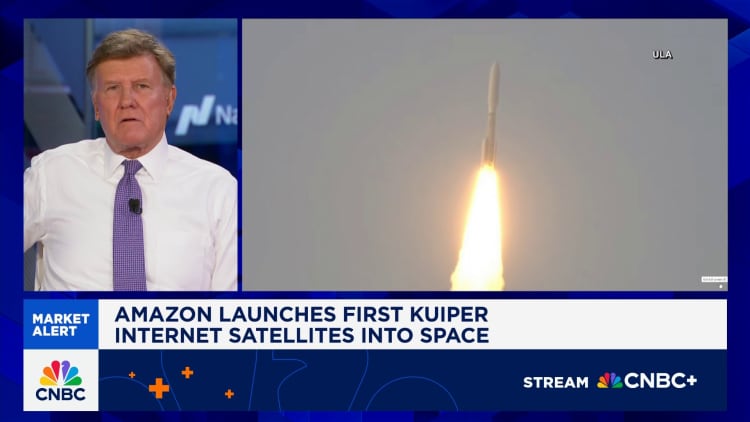JetBlue Collaborates with Amazon to Enhance In-Flight Wi-Fi

JetBlue Airways has announced a partnership with Amazon to integrate the company’s Project Kuiper satellite technology into its aircraft, significantly improving in-flight Wi-Fi services. The collaboration, revealed on Thursday, marks a critical milestone for Amazon’s satellite internet initiative and indicates growing confidence in the emerging market for satellite-based connectivity.
The rollout will begin in 2027 and is expected to cover approximately a quarter of JetBlue’s fleet by 2028. JetBlue’s President, Marty St. George, highlighted the advantages of Project Kuiper, which is designed to offer high-speed, low-latency internet compared to traditional geostationary satellite networks. This partnership positions JetBlue as the first airline to adopt Kuiper’s services, providing it with a competitive edge in the increasingly crowded aviation market.
Amazon’s Ambitious Satellite Plans
Project Kuiper aims to establish a constellation of internet-beaming satellites in low-Earth orbit, with the goal of launching around 3,236 satellites. Currently, Amazon has successfully launched 102 satellites since April and is working to meet a Federal Communications Commission requirement to have half of its constellation, about 1,600 satellites, operational by the end of July 2026. As the project progresses, Amazon anticipates starting commercial services later this year.
Chris Weber, Vice President of Sales and Marketing for Project Kuiper, expressed enthusiasm about the partnership, stating, “Even though we still have a lot more work to do, we’re super excited to have JetBlue as the first airline customer for Kuiper.” This collaboration not only showcases the capabilities of Amazon’s technology but also highlights the increasing demand for reliable in-flight connectivity.
Competition in In-Flight Connectivity
The move comes as U.S. airlines strive to enhance their in-flight Wi-Fi offerings, an area that has long faced criticism for slow speeds and high costs. JetBlue’s current in-flight internet is powered by Viasat, which operates a network of geostationary satellites, and this partnership will continue alongside the integration of Project Kuiper technology.
JetBlue’s decision to adopt Amazon’s satellite service is significant as it positions the airline to compete directly with Elon Musk’s Starlink, which has established itself as a leader in the satellite internet space with approximately 8,000 satellites in orbit. Other airlines are also taking steps to improve connectivity; for example, Delta Air Lines recently announced complimentary Wi-Fi for its SkyMiles loyalty program members, while Hawaiian Airlines has begun using Starlink for free in-flight internet.
As the aviation industry continues to evolve, JetBlue’s alliance with Amazon highlights a broader trend of airlines seeking innovative ways to enhance passenger experience through technology. With plans for future combinations of low-Earth orbit and geostationary satellite services, JetBlue is set to redefine in-flight internet access, providing travelers with faster and more reliable connections in the skies.






